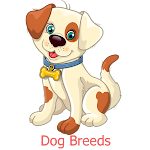 |
| OVERWEIGHT AND DOG WEIGHT LOSS PLAN |
Determining Your Dog's Weight
Before embarking on a weight loss plan for your dog, it's important to determine if they are indeed overweight. You can do this by feeling for your dog's ribcage – you should be able to feel the ribs without excess fat covering them. Additionally, you can look at your dog from above – they should have a discernible waistline. If you are unsure, consult with your veterinarian for an accurate assessment.
YOU MAY LIKE Dog Weight-Loss:
How to Help a Dog Lose WeightDog Weight Loss Program
Creating a Weight Reduction Plan for Dogs
Best Dog Weight Loss Program
How to Put Your Dog on a Diet
Weight-Loss Camp For Dogs
OVERWEIGHT AND DOG WEIGHT LOSS PLAN
How to Help Your Dog Lose Weight
Dog Weight-Loss
7 Foolproof Tips to Help Your Dog Lose Weight This Year
Weight Reduction in the Obese Pet
Creating a Weight Loss Plan
Once you have determined that your dog is overweight, the next step is to create a weight loss plan. This should include a combination of diet modification and increased exercise.
Diet Modification
Switching to a high-quality, weight management dog food can be an effective way to reduce your dog's calorie intake. These foods are specifically formulated to provide the necessary nutrients while helping to control weight. Additionally, it's important to measure out your dog's portions to avoid overfeeding. Treats should also be given sparingly and only as rewards for good behavior.
Increased Exercise
Regular exercise is crucial for weight loss and overall health. Aim to engage your dog in at least 30 minutes of moderate to vigorous exercise each day. This can include brisk walks, playtime at the park, or interactive games such as fetch. Not only will this help with weight loss, but it will also strengthen the bond between you and your dog.
Monitoring Progress
It's important to monitor your dog's progress throughout their weight loss journey. Keep track of their weight, body condition score, and overall energy levels. This will help you make adjustments to their diet and exercise routine as needed.
Conclusion
Helping your dog achieve and maintain a healthy weight is an important part of being a responsible pet owner. By implementing a proper weight loss plan that includes diet modification and increased exercise, you can improve your dog's overall health and quality of life.
FAQs
How quickly should I expect to see weight loss in my dog?
Every dog is different, so the rate of weight loss can vary. However, you can typically expect to see noticeable changes within the first few weeks of implementing a weight loss plan.
Is it safe to put my dog on a weight loss plan without consulting a veterinarian?
It's always best to consult with a veterinarian before starting a weight loss plan for your dog. They can provide guidance on the best approach based on your dog's specific needs and health status.
What if my dog is not losing weight despite following a weight loss plan?
If your dog is not seeing any progress despite your efforts, it's important to consult with a veterinarian. There may be underlying health issues that need to be addressed, such as thyroid problems or metabolic disorders.
YOU MAY LIKE:
The 10 Best Dog Breeds for First-Time Owners
The 10 Best Dog Breeds for Guarding
The 10 Best Dog Breeds for Seniors
The 10 Best Hypoallergenic Dog Breeds
The 10 Complete Dog Breeds Guide for Beginners
The 10 Dog Breeds Perfect for Families with Children
The 10 Dog Breeds with the Best Diving Abilities


